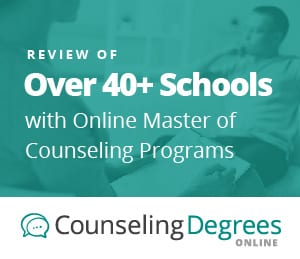What Is Geriatric or Elderly Counseling?
Geriatric counseling, also known as elderly counseling, is a subfield of general counseling that involves providing specialized care to adults in the geriatric or elderly population. These individuals may have circumstances that make them more prone to emotional disturbances, as well as common psychological illnesses, such as depression and anxiety.
As a counselor in this field, you can work with clients who are nearing the end of their lives or those who are working through detrimental illnesses that impair their overall quality of life. In some instances, you may also work with individuals and their families as they find healthy ways to cope with the changes associated with late-stage aging.
Some of the most common issues counselors with geriatric patients may address include coping with the loss of friends and family, assisting with despair associated with memory loss, and coping with long-term illness or hospice care. Some counselors may even work for hospice care agencies as a source of support for clients and their loved ones.
The aging population may be subject to many sources of anxiety due to their changing health and quality of life. The counselor's role in the process can include helping clients refocus their outlook on positive experiences, time with family, and end-of-life goals.
Counselors in this field may assist geriatric patients with recognizing achievements in their lives and identifying meaningful relationships for support along the way. Some counselors in this area of expertise may also include family members in the therapeutic process.
Geriatric or elderly counseling may also involve some of the standard counseling functions found in the generalist field. A counselor may employ techniques such as mental health assessments, application of common individual and trauma-focused therapies, and continued treatment planning during the treatment cycle with elderly patients.
Consider a Featured Online Counseling Program
| School and Program Information | Online Program? Entry Requirements |
Course Information |
|---|
*Sponsored Counseling Programs
Online CACREP Accredited programs | Online MPCAC Accredited programs
Geriatric Counseling Degrees
Geriatric counseling degree programs can provide you with the education you need to address and treat common issues related to mental health in the geriatric age group. Your education level can determine what type of services you provide to your clients, as well as the type of treatments you may administer.
This specialized field is attainable through a combination of degree sources for certification and licensure. Program lengths can vary, affecting the total time it takes you to become licensed.
Bachelor’s of Counseling
At the very beginning of your educational experience, you can expect to complete bachelor’s-level programs as a baseline for your future licensure. A bachelor’s of psychology is the most common option for undergraduate education, with bachelor’s of counseling and Bachelor of Social Work (BSW) following close behind.
Master of Counseling in Geriatric Counseling
A master’s-level education is a minimum requirement in most states for licensure, as well as program accreditation. The master’s in counseling can be a great option for upcoming mental health counselors seeking to work with the aging population.
To complement your master’s in counseling program, you can also participate in a geriatric or gerontology counseling postgraduate certificate program. These certificate programs can provide you with more insight into this population specifically and allow you to cater your counseling techniques to the needs of those of geriatric age.
Master of Social Work
If you are interested in social work, an MSW can be your next step toward a career in geriatric counseling. Licensing as an MSW means that you could provide counseling services to the population while under the direct supervision of an LCSW.
Some students may choose to go even further with their degree program to provide high-quality services to their clients. Doctoral counseling programs can be found online and in traditional universities all over the country.
Students taking the psychologists’ path may complete doctoral programs in clinical psychology as part of their educational requirements. Doctoral programs can include more education credit requirements and extended clinical requirements in the field.
Geriatric Psychology Graduate Programs
Students who are interested in becoming licensed counselors for the geriatric population should consider the accreditation of their degree program before enrolling. The leading agency for accreditation for counseling is the Council for Accreditation of Counseling and Related Educational Programs (CACREP).
CACREP does not currently have online programs in geriatric counseling included within its available accredited programs. However, many programs offer generalized curricula and counseling techniques that can be applied to geriatric patients.
Online and accredited counseling programs can be found through universities like Colorado Christian University. This school currently offers an accredited online Master of Arts in Clinical Mental Health Counseling, which may feature coursework and knowledge applicable to geriatric counseling. This program consists of 60 total credits and prepares graduates for the National Counselor Examination (NCE).
Some upcoming students of master’s programs also choose to pursue accredited specializations like rehabilitation counseling to connect with the geriatric client base. This specialization can allow students to explore different coping mechanisms for adults who are managing debilitating illnesses and injuries associated with old age.
CACREP currently offers in-person gerontological counseling programs that can also function as effective substitutes for geriatric psychology graduate programs.
One such program is offered through San Francisco State University (SFSU). SFSU’s Master of Science in Counseling offers a focus in gerontological counseling that is CACREP accredited. Students can take courses such as Biopsychosocial Aspects of Health, Behavioral Health, Aging, & Disability; Counseling the Older Adult; and Addictions as part of the specialized curriculum.
Sample Courses
As you sort through the different online degree programs available in your field, you should explore the curriculum associated with each one. Your coursework can assist you in developing treatment strategies based on the historical development of the field and common practice in counseling today. The names and topics of courses can vary depending on where you are enrolled and your unique degree program.
While some of the courses along your path may focus on the standard aspects of counseling, you may also take classes that can allow you to further your knowledge in the aspect of geriatric treatment planning and administering counseling tools.
Psychopathology
Psychopathology in geriatric counseling is a course that provides students with the skills necessary to assess and diagnose mental illness within their geriatric clients. Students in this course can learn how to utilize the “Diagnostic and Statistical Manual of Mental Disorders, Fifth Edition (DSM-5)” as a tool for providing diagnostic care to their clients and that can establish a baseline for therapy in the future.
Group Counseling
Group counseling may be included in a geriatric counseling curriculum since some of the work you can do in the field could include groups of families. Theories of communication, coping, and recognition between members of family groups can be learned throughout this course, which may be beneficial to families struggling with internal relationships.
Path to Becoming a Geriatric Counselor
- Bachelor’s: A bachelor’s degree is the foundation of learning counseling techniques. You can pursue a bachelor’s in psychology, counseling, or social work, depending on which educational path you plan to take.
- Master’s: The master’s in counseling is the most popular degree choice for students who want to specialize in the geriatric age group. Graduates of MSW programs can also provide counseling services after licensure, but with certain restrictions not present in counseling fields.
- Certification: Students who do not participate in accredited geriatric or gerontological counseling degree programs may require additional certification after their completion of a graduate program in counseling. Certificate programs in geriatric or gerontological counseling can help to provide more specialized knowledge that can be beneficial for geriatric counselors when working with clients.
- Experience: Any counseling degree program leading to licensure will include supervised experience components of varying degrees. In most states, students must participate in clinical experiences lasting around two years under the supervision of licensed professional counselors (LPCs). However, requirements may vary by state.
- Examination: All of the hard work and intensive studying during your educational and supervision experience can lead to the final step on your licensure journey. The NCE is a board examination required by all licensing prospects. You can register for and complete this test once all of the other components on your path have been completed.
- Licensure: When you are ready to apply for licensure, you should submit your application through your state’s licensing agency. This can include an application for licensure, licensing fee, official transcripts, counseling certification, and proof of experience. State requirements for licensure can vary, and you should research your state’s specifics before applying.
Important Elderly Counseling Organizations to Know
Professional organizations can be an important support resource for new counselors seeking validation and community during their careers. There may be numerous professional agencies available to consider, many of which consist of professionals from both the counseling and the geriatric care communities.
American Counseling Association
Licensed counselors in all specialized disciplines can purchase membership to the American Counseling Association (ACA) to further their knowledge after licensure. This organization is one of the leading options for counselors in the field and likely one of the most populated.
The ACA can provide you with the opportunity to explore constructive research studies, which can help you learn about new treatments and techniques as they emerge. In addition to this aspect of learning, you can participate in conferences and meetings with other licensed counselors.
American Geriatrics Society
If you are interested in joining an organization focused specifically on the quality of care for geriatric clients, the American Geriatrics Society (AGS) is a good option to consider for membership. This organization takes a multidisciplinary look at the overall quality of care of this population, including viewpoints from a multitude of professional providers.
Participation in this group can help keep you up to date with the various presenting issues faced by the geriatric population, which can contribute to the type of counseling services you provide in the field. Membership to this group may also grant you access to research and professional networking with members.
Sources:
American Counseling Association
American Geriatrics Society, Geriatrics as a Profession
American Mental Health Counselors Association, Clinical Mental Health Counseling Specialist in Geriatric Counseling
Colorado Christian University, Master of Arts in Clinical Mental Health Counseling
Council for the Accreditation of Counseling and Related Educational Programs, Counseling Specialties
Council for the Accreditation of Counseling and Related Educational Programs, Find a Program
San Francisco State University, Gerontological Counseling
Career Options
Completing your degree program and obtaining your professional license in counseling can be an exciting and exhilarating experience. Once you have met these milestones in your educational career, you can pursue geriatric counseling careers in the field.
Like many other counseling careers, you may find that there are various positions to consider, depending on your preferences for settings and the availability within your area. As you explore job openings in your area, consider what type of influence you would like to have throughout your career.
Counselors in the geriatric focus can often be found in rehabilitation and hospice care settings. Counselors in these environments may assess clients and provide therapeutic services associated with their current mental states.
Counseling professionals in geriatrics may also be found in mental health agencies since they normally offer treatments to a wide patient demographic. Some professionals choose to work in the general mental health setting so that they can exercise their general counseling certification alongside their geriatric specialization.
Geriatric counselors can also be employed by local hospitals or long-term care facilities that serve the aging population. Having geriatric mental health specialists on staff can help to promote the overall quality of care of geriatric patients.
In addition to working in health care and mental health practice, licensed counselors in this field can work in private practice. This is a common career choice for specialized counselors seeking to work directly with clients within their specialization.











